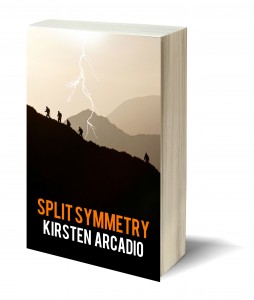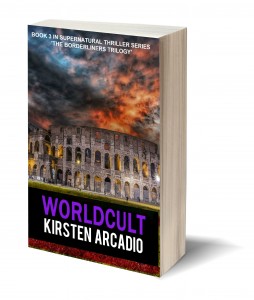What if ghosts were not spirits of the past but a manifestation of another reality?
What if the past is not the past and the future not the future? That all timelines merge into one simultaneous view of space time? Is time what we perceive it to be, or is everything past, present and future happening at once?
Hokum?
Well, even I find it difficult listening to the ideas of ‘Ramtha’ without raising my eyebrows. But where is the line?
Quantum mysticism is one of the areas which lends itself to New Age interpretations. Can it be explored without verging onto the no-man’s land of made up explanations of the supernatural? Some might say this is what many forms of religion do anyway. I’m not saying any such thing, but I find it relevant to throw those questions out there whilst entertaining my readers, of course. Questions, not answers.
Answers have no place in fiction.





Hmmmm. Interesting.
“What if ghosts were not spirits of the past but a manifestation of another reality?”
Don’t know about Ghosts, but that’s exactly what Angels are.
And…
“What if the past is not the past and the future not the future? That all timelines merge into one simultaneous view of space time? Is time what we perceive it to be, or is everything past, present and future happening at once?”
…is exactly what happens at every Mass. Time folds into Eternity and Eternity enters time. The perpetual sacrifice of Jesus – the Last Supper and Calvary – is made manifest, re-presented, at every Mass. We participate in that same, one-and-only Mass Jesus celebrated in the Upper Room, as do the Angels and Saints. It was, and is, as the Epistle to the Hebrews puts it, ‘once, and for all’. We don’t ‘re-sacrifice’ Christ or re-enact it, as Protestantism claims, we participate in its very reality ‘back then’, and as it is in heaven, but here and now.
The heart of Catholicism is Metaphysics, whilst the heart of Protestantism and the New Age is Epistemology (Gnosticism/Jungianism) when they’re not just irrational Fideism (which is most of the time!).
This is why Protestantism and the New Age behave and think so often like the flip-side Atheism, and so can’t stop the roundabout in debates. They share the same intellectual DNA, so neither can think outside ‘the March of Progress’. They get obsessed with the six days of creation, the Second Coming, and suchlike when it comes to time, and an obsession with proof texts, charismatic manifestations, and miracles in relation to ‘the world’. Likewise, the New Age will simply go round in circles in relation to your comments. Post-modernity rightly ridicules this, except it’s even more stupid as it saws off the branch its sitting on which it shares in common with them all.
Within all these frameworks, your thoughts are, indeed, puzzling. But in terms of Metaphysics, common-sensical. The Catholic Church and Aquinas took them for granted until Ockham and Scotus came on the scene who led the way out of the Church towards The Reformation and The Enlightenment, and Ockham’s current great grand-children: the Secularists/Nihilists of today.
Just a thought, but if ‘Answers have no place in fiction’, then why do so many claim that reading a certain novel, for them, was ‘a life-changing event’? If fictitious cautionary tales have no answers in them, why do they make us think about changing, or why do we tell them to our children? Indeed, why do some stories make us cry and jokes make us laugh even if they’re not real, if they don’t contain some element of truth? Surely the degree to which fiction corresponds to reality (truth) – i.e., provides answers – it becomes credible?
For example, I hated the Harry Potter series. Not because magic isn’t real, but because they used magic to do inane things when they felt lazy, but when really up against it, failed to wave the magic wand when it would have sorted the life-threatening situation in a jiffy. The fiction lacked credibility, so there must be some innate, or tacit, criteria by which we judge the success of the fiction? If fiction raises questions in the mind of the reader which it never answers, it’d be rubbish wouldn’t it? It’d be like an reading an Agatha Christie (Who Dunnit?) without the summing up and disclosure of the villain (The Answer: him). Would it still be fulfilling as a story without the ending? Surely novels are a constant interplay of questions and answers between the author and reader which keeps them engaged, and the ones that fail, or the points at where we give up, are the ones which fail to provide answers, that is, provide ‘feedback’?
Some people read novels and say they continued reading only with the expectation they would find out X in the end, only to have those hopes dashed. Surely, these ‘expectations’ are actually questions seeking an answer?
What do you think?
All very interesting!
RE answers, I simply mean that authors should not try and feed answers to readers, rather that readers can find their own answers as a result of having read a story. What is an answer for one person is not an answer for another.